Today, we’re looking at the latest news, trends and innovations in global payments and e-commerce. We start with Google’s tracking of consumer credit card purchases and the potential Big Data profiling possibilities.
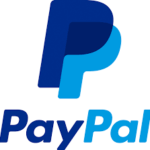 PayPal continues its impressive growth, racking up Q1 2017 sales of $32 billion on tablets and smartphones, a 51% increase year-over-year. Consumer advocates say the GOP’s Financial Choice Act will penalize consumers in financial trouble by lowering regulation of payday and vehicle title loan companies and allowing exorbitant fees as high as 400% on these loans.
PayPal continues its impressive growth, racking up Q1 2017 sales of $32 billion on tablets and smartphones, a 51% increase year-over-year. Consumer advocates say the GOP’s Financial Choice Act will penalize consumers in financial trouble by lowering regulation of payday and vehicle title loan companies and allowing exorbitant fees as high as 400% on these loans.
A report by Yahoo’s Aabaco Small Business says 83% of consumers never complete their purchases, a loss of more than $6.2 million annually to the industry. PPRO’s latest report profiles unique payment differences among 12 Western European countries where 70% of consumers use mobile for payments compared to 42% globally; credit cards reach only 48% of the region’s consumers; and 20 alternate payment methods are available.
 Worldpay is now testing a new system that allows payments within virtual reality worlds. Paytm and PayU are part of a trend in India away from e-wallet services because of low customer demand compared to other more profitable financial services. Paytm Payments Bank launched last week in India with cashback on deposits, zero fees on online transactions, no minimum balance, and a target of 500 million customers by 2020.
Worldpay is now testing a new system that allows payments within virtual reality worlds. Paytm and PayU are part of a trend in India away from e-wallet services because of low customer demand compared to other more profitable financial services. Paytm Payments Bank launched last week in India with cashback on deposits, zero fees on online transactions, no minimum balance, and a target of 500 million customers by 2020.
In Australia, Trade Me introduced a buy now pay later service for e-commerce transactions allowing consumers to pay for goods every two weeks for four weeks and providing instant payment to retailers.. Wirecard hopes retailers will use its new, real-time confirmation of payments service to help retailers speed up transactions, reduce fraud and lower costs.
Google Now Tracks Your Credit Card Purchases and Connects Them to Its Online Profile of You
 Google’s new ability to match people’s offline credit card purchases to their online lives is a stunning display of surveillance capitalism in action.
Google’s new ability to match people’s offline credit card purchases to their online lives is a stunning display of surveillance capitalism in action.
The capability, which Google unveiled this week, allows the company to connect the dots between the ads that it shows its users and what they end up actually buying. This is a crucial link for Google’s business that, for all the company’s inventiveness, remains a matter of attracting users to its predominantly free services, collecting user data, and leveraging that data to sell advertising. If Google can show that someone who saw an ad for a furniture store in Google Maps, say, then went and made a big purchase at that store, the store’s owner is much more likely to run more ads.
So, if you buy stuff with a card, there’s a less than one-in-three chance that Google doesn’t know about it. Via technologyreview.com
PayPal’s merchant connections are a lesson for the entire industry
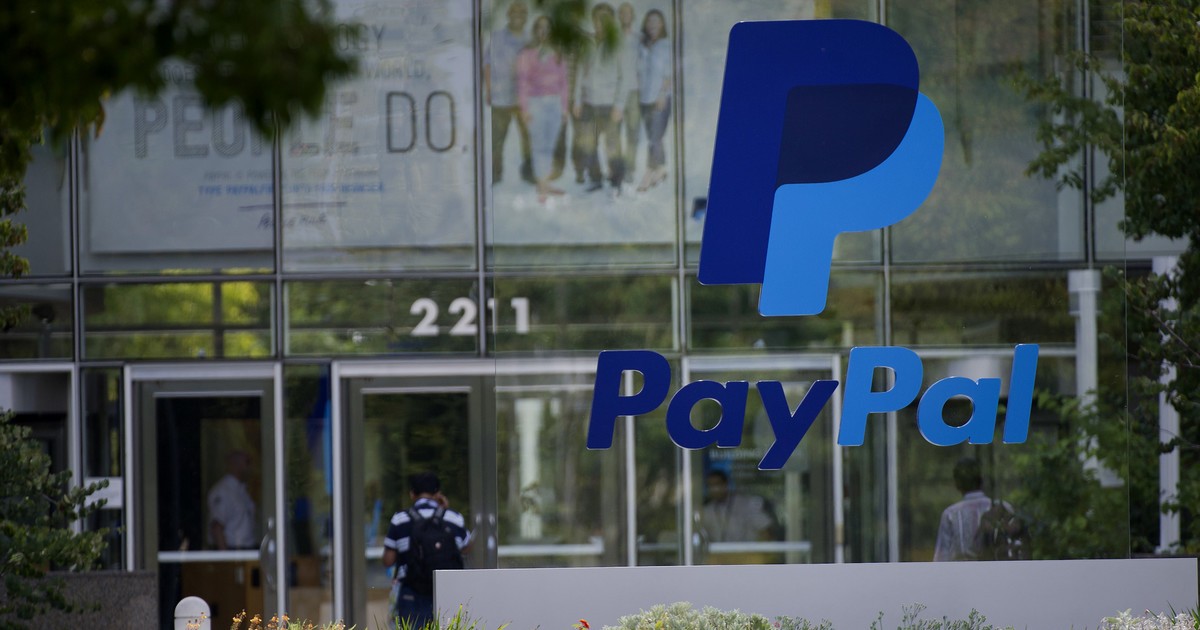 PayPal’s recent success can be tied back to increased consumer demand for convenient transactions: 45 percent of consumers report alternative payment options as “Very Important” when making purchases on mobile devices, according to recent research by Astound Commerce.
PayPal’s recent success can be tied back to increased consumer demand for convenient transactions: 45 percent of consumers report alternative payment options as “Very Important” when making purchases on mobile devices, according to recent research by Astound Commerce.
In Q1 of 2017, PayPal reported that transactions grew 51 percent on tablets and mobile — which means the company processed close to $32 billion in charges from these devices. And Venmo, its peer-to-peer payment platform, is on a similar path (doubling its volume from the first quarter of 2016).
What is the key to its success and recent growth? Retailer buy-in. Alternative payment options are only as effective as the retailers and platforms that support them. Astound Commerce’s report found that PayPal has a significant market reach advantage: PayPal is currently supported by 88% of the top 100 e-commerce sites,. Via paymentssource.com
Buried deep within GOP bill: a ‘free pass’ for payday and car-title lenders
You have to wade all the way to Page 403 of the 589-page Financial Choice Act to find a one-sentence provision that obliterates current efforts to bring fairness and responsibility to payday lenders and similar merchants of never-ending debt.
Section 733 of the bill, which could come up for a vote by the full House of Representatives as soon as this week, declares that federal authorities “may not exercise any rule making, enforcement or other authority with respect to payday loans, vehicle title loans or other similar loans.”
With that one line, Republican lawmakers have declared their willingness to allow people facing financial difficulties to be at the mercy of predatory lending practices that typically involve annual interest rates approaching 400%. “They’re trying to sneak in that provision,” Diane Standaert, executive vice president of the Center for Responsible Lending, told me. “It seems like they hoped no one would notice.” Via latimes.com
83 Percent of E-commerce Customers Never Buy the Stuff in Their Cart
 It’s staggering but true statistic. Eighty-three percent of e-commerce customers never buy the stuff in their cart.
It’s staggering but true statistic. Eighty-three percent of e-commerce customers never buy the stuff in their cart.
The statistic came from a study conducted by Yahoo’s Aabaco Small Business. The study involved analyzing the habits of five million online consumers. It found that 250,000 shoppers added products to carts but 83 percent didn’t complete checking out. So how do e-commerce retailers overcome the rampant challenge of getting online shoppers to head to the check-out and actually purchase the items in their shopping carts?
As Aabaco points out, assuming each shopper has added a product worth, on average, $30, the loss from abandoned carts accounts for $6.2 million in revenue lost on potential sales. Via smallbiztrends.com
How well do you know the Western European payments ecosystem?
 PPRO’s latest report on Western Europe explores 12 countries’ payments ecosystem in the diversified region that is home to two major language groups, as well as some of the most important financial hubs in the world.
PPRO’s latest report on Western Europe explores 12 countries’ payments ecosystem in the diversified region that is home to two major language groups, as well as some of the most important financial hubs in the world.
For example, did you know that credit cards do not even reach half of the Western European population (48%), but that the region is home to about 20 alternative payment methods? Or that smartphone penetration is high across Western Europe, with an average of 70% of consumers transacting on their mobile compared to just 42% of consumers globally.
The average annual income of Western European markets is around $55,000, with a reported 247 million consumers shopping online. In 2016, Western Europeans bought $457.7 billion worth of goods and services online, with the highest e-commerce consumer acceptance from the UK, France and Germany. These three countries accounted for over 60% of the region’s online transactions.
And, for eight of the 12 countries that are profiled, 95% of the population have a bank account, with internet penetration also being high at over 90%. Via paymenteye.com
Worldpay demos system for making payments inside virtual reality worlds
 With virtual reality (VR) seemingly infiltrating every facet of our lives, from movie theaters and theme parks to TV broadcasting and internet searches, it’s only a matter of time before companies figure out how to make it easy for people to pay for things while immersed in their virtual worlds. And this is exactly what Worldpay is currently investigating.
With virtual reality (VR) seemingly infiltrating every facet of our lives, from movie theaters and theme parks to TV broadcasting and internet searches, it’s only a matter of time before companies figure out how to make it easy for people to pay for things while immersed in their virtual worlds. And this is exactly what Worldpay is currently investigating.
The payments processing giant has developed a proof of concept that demonstrates how shoppers could pay for things using their bank card while inside a VR environment. The prototype setup adopts Host Card Emulation (HCE) — virtual representation technology that’s similar to what’s used in mobile payments services such as Android Pay — to recreate a real-world payment experience inside a VR application.
Using EMV, an authentication technical standard for payment cards, Worldpay’s prototype works in pretty much the same way as any other contactless payment mechanism. The shopper taps a virtual card across a virtual card machine for purchases amounting to less than £30 ($39), and for amounts more than that Worldpay has created a new technology it calls AirPIN, which allows users to enter their PIN number through a virtual keypad. Via venturebeat.com
E-wallets: Why are payment companies moving out of the wallets business?
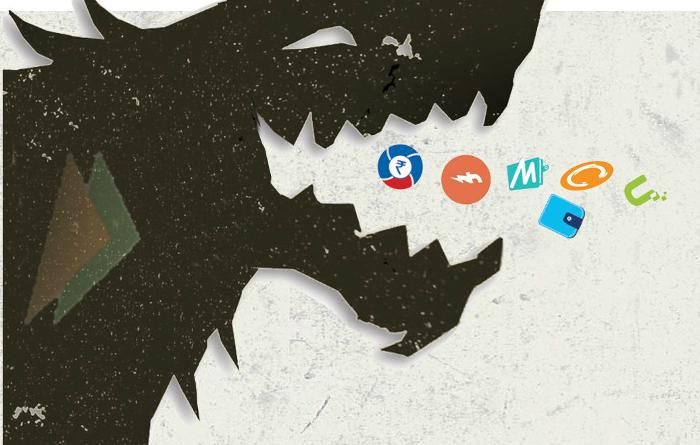 The payments ecosystem, much like food-ordering and e-commerce marketplaces, has the life expectancy of a character from a George RR Martin novel: high mortality and fast-changing fortunes, are a given. At the time of going to print, prominent payment wallet – Paytm – announced the launch of its payment bank– one that intends to provide “quick and basic banking services to people at the bottom of the pyramid.” Its parent company, One97 Communications, has come a long way from the mobile VAS player it started off as, back in 2010.
The payments ecosystem, much like food-ordering and e-commerce marketplaces, has the life expectancy of a character from a George RR Martin novel: high mortality and fast-changing fortunes, are a given. At the time of going to print, prominent payment wallet – Paytm – announced the launch of its payment bank– one that intends to provide “quick and basic banking services to people at the bottom of the pyramid.” Its parent company, One97 Communications, has come a long way from the mobile VAS player it started off as, back in 2010.
You know who else has gradually moved away from its payment wallets business? PayU. In September’16, when PayU acquired Citrus Payment Solutions, the merged entity became the largest payment gateway of India. Both companies had payment wallets, so in April this year, Citrus reportedly surrendered its wallet licence to the RBI and initiated the migration of its users to PayU Money (the parent company’s wallet).
Fun fact: PayU India’s new CEO Amrish Rau (former MD of Citrus Payments) also announced that payment wallet contributes to less than 1% of overall transactions – and this is a company that registers over 300 million transactions a day. “I have been saying this for the last one year or more now: Wallets are dead. Even independently both the companies (PayU and Citrus) never earned more than 2% revenue from wallet transactions. 98% came from being a checkout platform,” says Rau.
About 18 months ago, both companies (PayU and Citrus) independently realised that people can’t be forced into using a wallet for transactions; that they find it extremely irritating to put some money aside in separate wallets. “That’s why many who used Paytm for Uber switched to Ola because Ola Money (the cab aggregator’s own wallet) didn’t have the restriction of keeping a minimum balance of Rs 350,” he adds. Via brandequity.economictimes.indiatimes.com
Paytm Launches Its Payments Bank, Offers 4% Interest Rate and Cashback on Deposits
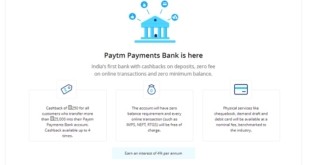 India’s largest digital wallet player Paytm has opened its payments bank. Starting operations on Tuesday, the Paytm Payments Bank will be the first bank to offer cash back on deposits, zero fees on online transactions and no minimum balance. Paytm’s target was 500 million customers by 2020.
India’s largest digital wallet player Paytm has opened its payments bank. Starting operations on Tuesday, the Paytm Payments Bank will be the first bank to offer cash back on deposits, zero fees on online transactions and no minimum balance. Paytm’s target was 500 million customers by 2020.
Renu Satti, the first CEO of Paytm Payments Bank added, “We are very excited to launch Paytm Payments Bank and bring financial services to the unbanked segment of Indians. Our ambition is to become India’s most trusted and consumer-friendly bank. Leveraging the power of technology, we aim to become the preferred bank for 500 Million users by 2020.”
Initially, Paytm Payments Bank accounts will be available on an invite-only basis. In the first phase, the company will roll out its beta banking app for employees and associates. Paytm customers can request an invite by going to www.PaytmPaymentsBank.com or on the Paytm iOS app. Via allindiaroundup.com
Trade Me launches buy now, pay later technology
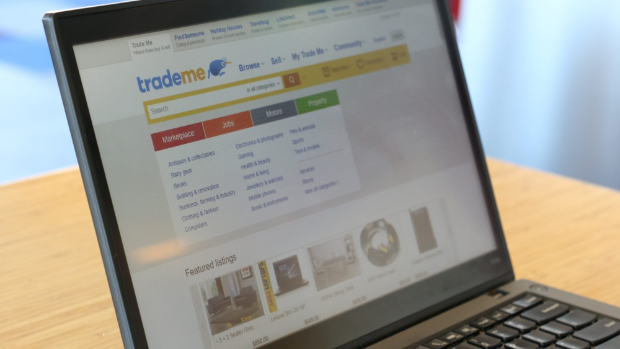 Trade Me’s new technology may make it easier for bidders to pay for goods, but it could be risky for buyers on a budget. Australian buy now, pay later payment provider Afterpay will be available on Trade Me listings from $20 to $800.
Trade Me’s new technology may make it easier for bidders to pay for goods, but it could be risky for buyers on a budget. Australian buy now, pay later payment provider Afterpay will be available on Trade Me listings from $20 to $800.
Buyers will receive the item they won straight away but can pay for it in four fortnightly instalments. Sellers will receive the full payment immediately from Afterpay and the payments from the buyer will go to Afterpay.
Although the payments are interest-free, a late fee of A$10 applies there if payment is not made by 11pm after the scheduled due date, and a further fee A$7 is added if a payment is not made a week after that. The Afterpay website says once a payment date is decided it cannot be changed. Via stuff.co.nz
How Wirecard Is Making Waves In The Payment Industry
 While there’s currently a significant shift in payment processing, it has proved difficult to rock the establishment or change ideas, especially when it comes to money and all things financial.
While there’s currently a significant shift in payment processing, it has proved difficult to rock the establishment or change ideas, especially when it comes to money and all things financial.
However, despite the odds, independent services provider, Wirecard AG (OTC: WRCDF) (ETR: WDI), is managing to do exactly that, as the company looks to change the way people pay.
Utilizing Real Time Data
Wirecard looks to set itself apart from other payment service providers by utilizing real time data to make payment transactions safer and provide retailers with data to drive sales. Through a large umbrella of products, including the Skrill Digital Wallet, Wirecard is able to speed up the process by giving retailers instant confirmation of payment. This eliminates the risk of fraudulent transactions and gives them an easier and cheaper way of receiving payments worldwide. Via benzinga.com








LET’S CONNECT